Bakhmut, the eyes of the wounded, and the victorious. How Mufti Said Ismagilov went to save Ukraine with a gun and the Quran
"The Moskals [Muscovites, a formerly neutral, now derogatory term for Russians - ed.] have been coming to my family for a century, destroying and taking away everything we own, everything we value," says 44-year-old Said Ismagilov. Ismagilov, a native of Donetsk, used to be the Mufti of UMMA, the Spiritual Administration of Ukraine's Muslims. He enlisted in the army on 24 February 2022 [the day the Russians invaded] and is now serving in a paramedic unit in the city of Bakhmut.
A video recently appeared on social media that shows Said reading out Sura 48 of Al-Fath, a chapter of the Quran about victory, amidst the ruins of Bakhmut, in a mosque that had remained unfinished due to the full-scale invasion. Of the many reasons why Ismagilov took up arms, one is personal. It reflects the history of the whole of Ukraine, which has never known peace because of Russia.
"My family fled from the province of Penza to the mines of Donbas during 'dekulakisation' [a Soviet campaign of political repressions, including arrests, deportations or executions, of millions of prosperous peasants and their families - ed.] in order not to die of hunger - in order to survive," Ismagilov says. "The same Moskals came to Donbas and persecuted me in 2014. I was forced to go to Kyiv, and I settled in Bucha [Kyiv Oblast]. But Moskals came there in 2022 as well and robbed my apartment.
Honestly, it's made me so sick to my stomach that we must destroy them if they come up again like that." In this interview, Said Ismagilov talks to UP about the spiritual emptiness of Russia, the eyes of the wounded in Bakhmut, what motivates Ukrainians in this war, and the most powerful human weapon. This story is told in Said's own words.
Ritualism
In the eyes of the wounded, there is pain most of all.
People are suffering, moaning, screaming. Those who have it the worst cannot scream at all. There are some [wounded soldiers] who say, "Don't send me to hospital.
Send me back to my position." My task is to take the wounded quickly to a first-aid post, and to keep my eyes on the road. I'm driving, so I can hardly see the eyes of the wounded.
Before 24 February, I could not have imagined that I would be so cold-blooded towards all of this. I did not know that I could look so calmly at such seriously wounded people, or at ripped-off limbs. Or something exploding nearby, or burning.
But it turned out that I can. I can (Said pauses). That was a discovery for me.
I used to be a Mufti before the war, you see? I used to meet kings, presidents, ministers and deputies. But now, it turns out that I can live in the cold, without heating or power, knee-deep in mud.
I have never been in a meat grinder like this before. When you go off to war, it's difficult to predict how you will behave. A lot of people panic.
Some are confused, while others, on the contrary, are highly focused and do their job well. Fortunately, no one in our crew has died. Several times it was close, but each time, by the grace of God, we kept them alive.
Although, of course, there was one time when later, doctors in the medical facility were unable to resuscitate a seriously wounded man we'd evacuated. 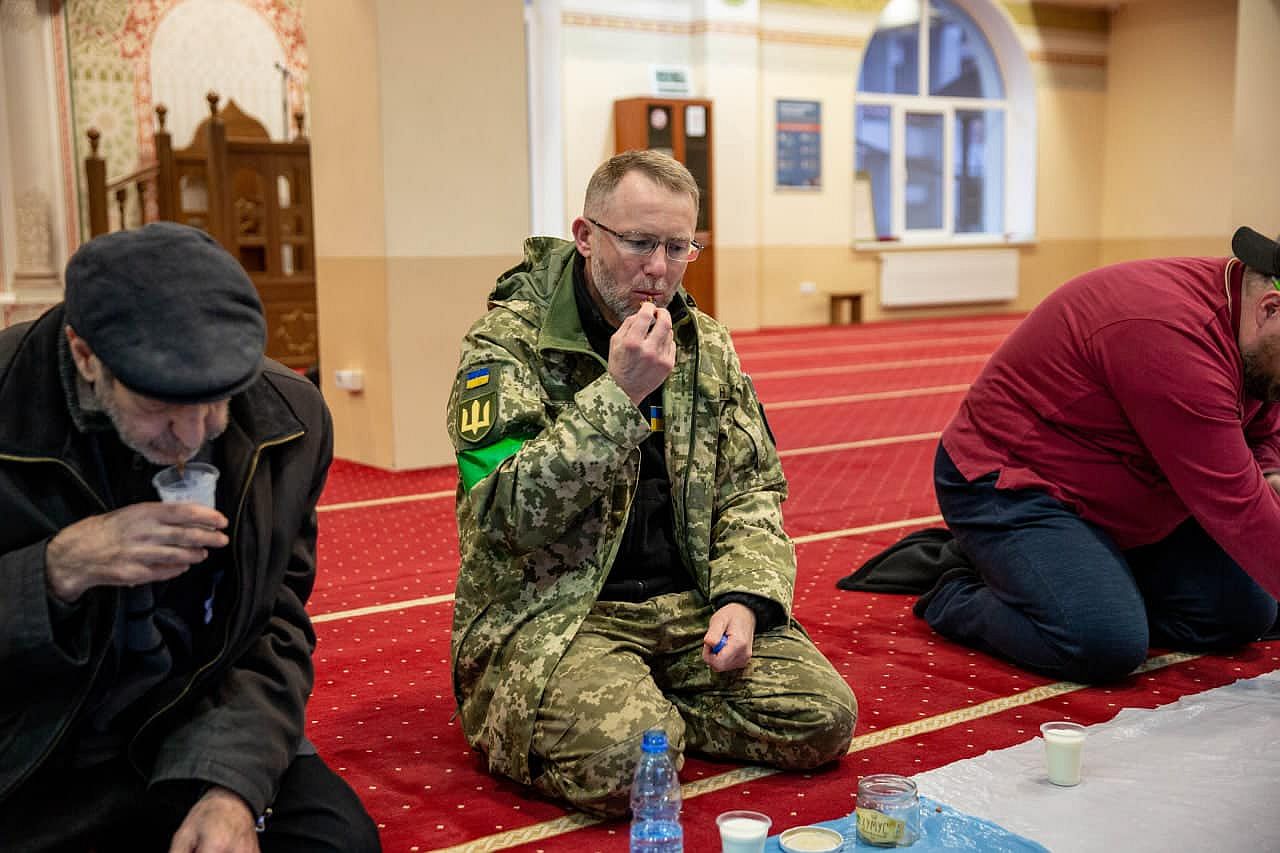
Rumour has it that Putin had been promised that Bakhmut would be taken by the New Year. They've thrown all of their assets and personnel at it.
They're acting like madmen, not caring about their losses. They have some absolutely fanatical desire to capture Bakhmut. Like the Crusaders, you know, who used to be constantly sailing from Europe to the Middle East to capture Jerusalem for the sake of some idea.
The immorality of the enemy shocks me. They are pointlessly attacking residential areas where there are civilians who, unfortunately, are still there and for some reason don't want to evacuate. We evacuate citizens every day with serious injuries, for heaven's sake.
Today there's been an elderly woman whose leg was torn off by a shell fragment. I have no sympathy for the enemy. Absolutely none.
I can see with my own eyes how inhumanly they behave. So [inhumanly] that it's a shock for Ukrainians and all normal people. But it's normal for the Russians themselves.
They really are brought up that way. They really have such a pathetically low level of morality that they commit their terrible crimes and don't care about it at all. When people talk about Russian spirituality, some special religiosity, it's the same myth as those myths about the "world's second-greatest army" and "Russian culture".
There's a term in religious studies - ritualism. That's when a person doesn't believe in God, moral virtues, or values, but when the most important thing is to perform the rite correctly. They wear a cross, go to church, light a candle, donate something - well done!
What a spiritual person. But all of these rites are not filled with humanity. And in their life, the same person can behave like the worst criminal and sinner.
Like the worst creature. The spirituality of the Russians is emptiness.
Childhood
My father was a miner. My mother worked first at a factory that made technical rubber products, and then at bread factory No.
5 near the TSUM department store in Donetsk. Everyone in the family was hard-working. Ever since I was a child, my grandmother and mother insisted that I had to learn a trade and work in a factory or a mine to earn money.
Like everyone in Donetsk, basically. I enrolled in the Department of Mechanical Engineering at a polytechnic. By the second year, I realised that I had no interest in it.
In general, I like humanities rather than technical sciences. I became interested in spirituality and Islam. I looked for books to learn more about religion.
Although all my relatives consider themselves Muslims, they were Soviet people at that time. Their religion was nominal: yes, we are Muslims, but we don't know anything or practise anything. That wasn't enough for me.
I finished my course at the technical college, although I didn't really want to. Then I left to study at the Moscow Higher Islamic College, which was later renamed as a University. 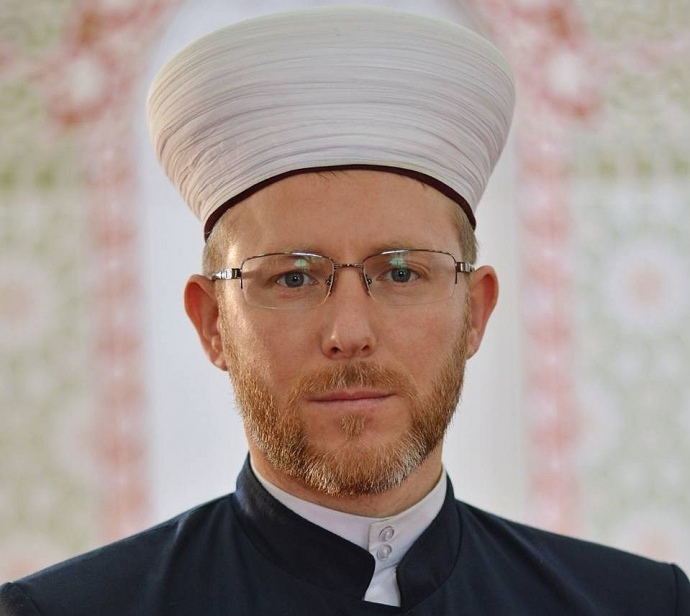
I'm still a fan now. The team has its own history and future, no matter which oligarch owns the club," says Ismagilov.
Most of my childhood took place during the years of perestroika. It was a difficult time.
I lived in the Kuibyshevskyi district in Donetsk, in Smolianka [a microdistrict that arose on the site of a former mining village - ed.]. I remember the total lack of anything to buy when my mother took us children to stand in queues in the morning. At that moment muffled sounds can be heard on the other end of the phone line: "Boom-boom-boom!" "Wait, there are strikes," says Said calmly. "Don't hang up, I'm still here, but it's getting dangerous here.
They've started attacking our area. I'm going to move to another room." "Do you need a break?" the Ukrainska Pravda journalist asks.
"No, it's all fine." So... I remember I had to queue for milk, meat, and even bread when I was a child.
Most of my babyhood memories are of having very little food, especially good and tasty food. And those very long queues. I trained in the freestyle wrestling section at the local Kuibyshev Palace of Culture.
Badges, coins and stamps, including football stickers, were traded there on Sundays. And I appeared at all of these, so to speak, business meetings (he laughs). We used to walk to the old Shakhtar stadium through a mine named after Gorky when we were children.
If we had money, we bought tickets and went to the first half of the match. If we had no money, we watched the first half from the field, and in the second half we could enter freely.
Spiritual name
I left Donetsk eight years ago. Do I miss it?
No. I could have ended up "in the basement" back then, in September 2014, but the late Oleksandr Khomchenko [pastor of the Word of Life Protestant church - ed.] gave me a warning. He had taken part in the Revolution of Dignity and the prayer marathon.
Oleksandr was tortured, and when he was released, he came to the mosque and said that I was on the "kill list" and that I should hide. I lived in a place nobody knew. My parents' house was locked with a large barn door lock when two cars full of armed men arrived.
The neighbours - nice people - said that I'd left for Kyiv a long time ago. Then they called me. The next morning, I took the first bus from the Pivden (South) Bus Station to Mariupol, which had just been liberated. [The city of Mariupol had been under the occupation of Russian-backed separatists for one month in 2014, and was liberated by Ukrainian forces in June that same year - ed.]
They didn't have tablets at the Olenivka checkpoint back then, only a pile of papers with the names of the people to be detained. They pulled me off the bus and looked at my passport, in which my name is Serhii Ismagilov. But on their lists they had my spiritual name, Said Ismagilov.
Everyone knew me as a Mufti called Said. And then the fool who was checking the documents asks, "Who are you?" I was still teaching at the university at the time. I showed him a certificate which also gave my name as Serhii Ismagilov. "Do you know Said?" he asked me.
I said no, and that it must be someone else with the same surname. They let me go. 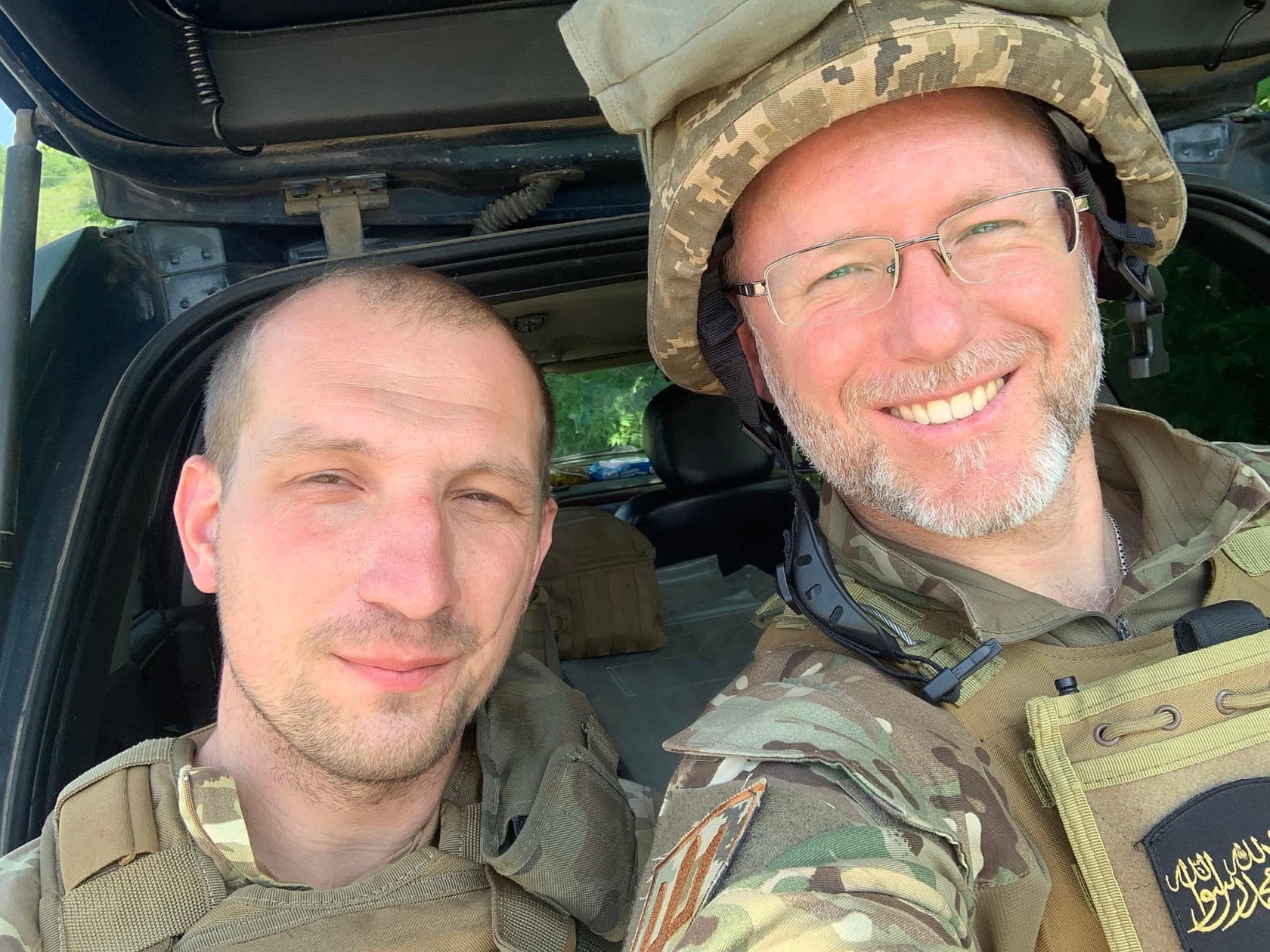
The beating of students on the Maidan [Independence Square in Kyiv, where the large-scale protests took place - ed.] made a huge impression on me," says Ismagilov.
In Donetsk, in my social circle, there were people who were patriotic. Of course we didn't believe the regional mass media, which broadcast whatever was beneficial to the Party of Regions and Yanukovych, who was supported by the majority of my countrymen. On 1 December 2013, we had to hold a spiritual management meeting in the Luhansk mosque, where community leaders from all over Ukraine had assembled.
I appealed to the meeting's attendees to support a statement condemning the beating of students in the capital and Yanukovych's policy, which was aimed at distancing Ukraine from Europe. The majority supported the statement. I had a meeting scheduled with representatives of the Greek Catholic Church, who had an office on Instytutska Street, near the National Bank of Ukraine, on 20 February 2014, the very day of the massacres.
I had travelled by train to the capital, but the meeting did not, of course, take place. However, all day I was in the maelstrom of events on the Maidan. I saw dead bodies being brought to St Michael's Golden-Domed Monastery.
After Yanukovych fled, I witnessed how the Russian Federation, together with local pro-Russian forces, stirred up the situation in Donetsk. The pro-Ukrainian rallies were very sincere, and I hoped that the Kremlin's schemes would not be successful. People were bussed in to pro-Russian rallies and paid 200 hryvnias each.
Everything looked so fake and funny - there were so many drug addicts and alcoholics in the audience to see Gubarev [a Russian activist who proclaimed himself the "People's Governor" of the Donetsk Region at the Regional Assembly on 3 March 2014, after separatists seized the building - ed.]. At the time, it didn't seem serious to me. But when local officials, the police and the secret services allowed these lumpen-proletarians to seize administrative buildings, it became clear that the situation was difficult.
Motivated people vs. punchbags
Having weapons is no guarantee of victory.
Spirit is stronger than weapons. If there is no bravery, peace, confidence or moral qualities, no weapon will help. The Iraqi Armed Forces, for example, threw away their weapons as they fled from the "insurgents" who were advancing in pickup trucks.
During the Six-Day War, the Arabs were heavily armed with Soviet equipment, but that did not help them win against Israel. The Russian occupiers in Kharkiv Oblast also abandoned their tanks and a lot of anti-tank missiles in this war as they fled. High morale is based on various things.
Some people are motivated by patriotism, others by religious or spiritual reasons. Some are motivated by a desire for justice and punishment for the enemy. Some have lost their home, their loved ones, or just their peaceful civilian life.
I have many motives of my own in this war. The main one is that Ukrainian Muslims do not want Russian occupation. Russia is not a state that is friendly to and tolerant of Islam.
Ever since the time of Ivan IV (Ivan the Terrible), Muslims have constantly suffered great losses caused by the Muscovites. Ivan IV arranged a riot in Kazan and ordered all of the men and even boys to be killed. The Muscovites have sought to exterminate Muslims ever since.
In Ukraine, this can be clearly seen in the history of the Crimean Tatars. Now the Moskals in occupied Crimea continue their harsh repression. The Muslims of Ukraine know for sure that all our rights, freedoms, religious life and spiritual revival will be ended if Russia comes here.
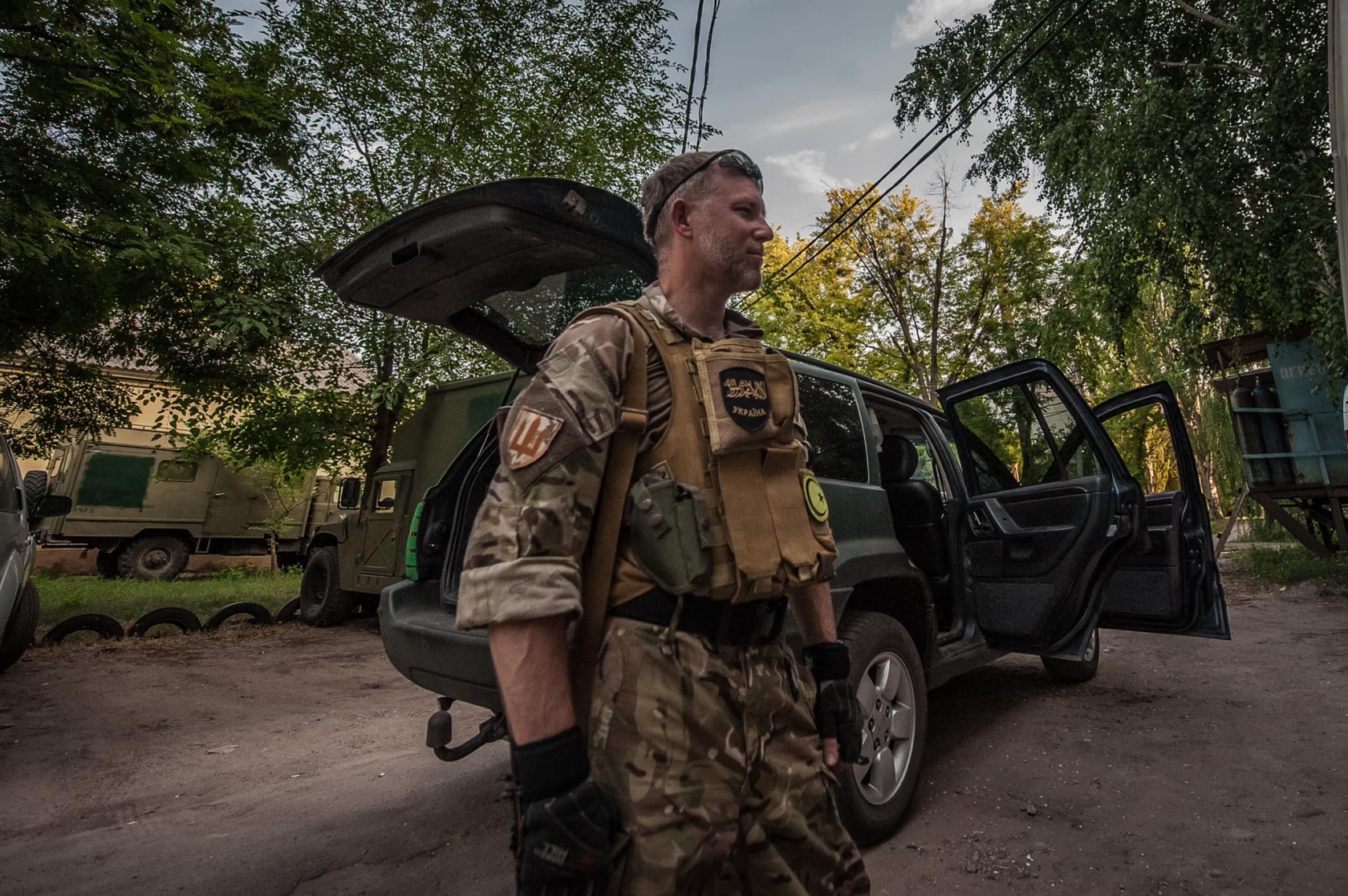
You know, in Donetsk slang, the not-so-beautiful word "punchbag" is a popular one.
Most Muslims in modern Russia are downright "punchbags". No matter what the Russians do to them, no matter how much they destroy their language, culture and religion, they'll just put up with it and be serfs, barge-haulers or whatever. They're just going to keep pulling that barge.
They have no free will at all. Only the Muslims of the North Caucasus, who have consistently opposed slavery, assimilation, and the destruction of their national identity, are different from these masses. There's greater awareness in the Caucasus.
In other regions of the Russian Federation, it's terrible. We can see that some Tatars and Bashkirs, in their desire to serve Russia, have become more like the Moskals than the Moskals themselves. In Tatarstan, teaching the native language as a compulsory subject in schools has been banned.
It's optional only, one lesson a week. What is this if not a mockery of the Tatar people? What is this but the destruction of their native language?
And they do nothing! They don't mind! Complete "punchbags".
They've been assimilated, deprived of everything, and they're still being sent to Ukraine to fight happily for the people who destroyed their statehood and identity.
The victors
It sometimes seems to me that some people still don't understand that we have a terrible war going on in this country. I am surprised and outraged by this. In the chat group for my housing maintenance offices, people discuss a hundred times a day when they should turn the lights on and why there is no water.
So all these guys we are evacuating right now are suffering horrible injuries just to have someone sitting in the rear whining that they don't have electricity? It's really annoying. At the front, there's no heating, no water, at best there is a generator.
You're knee-deep in mud in trenches. These are the conditions in which our heroic soldiers are doing everything possible - and even the impossible - to protect life in Ukraine. What I was trying to get across was that even if you don't have rockets falling on your head every day, it doesn't mean there's no longer a war going on.
You have been warned many times that the enemy is deliberately attacking the energy infrastructure and will continue to attack it.
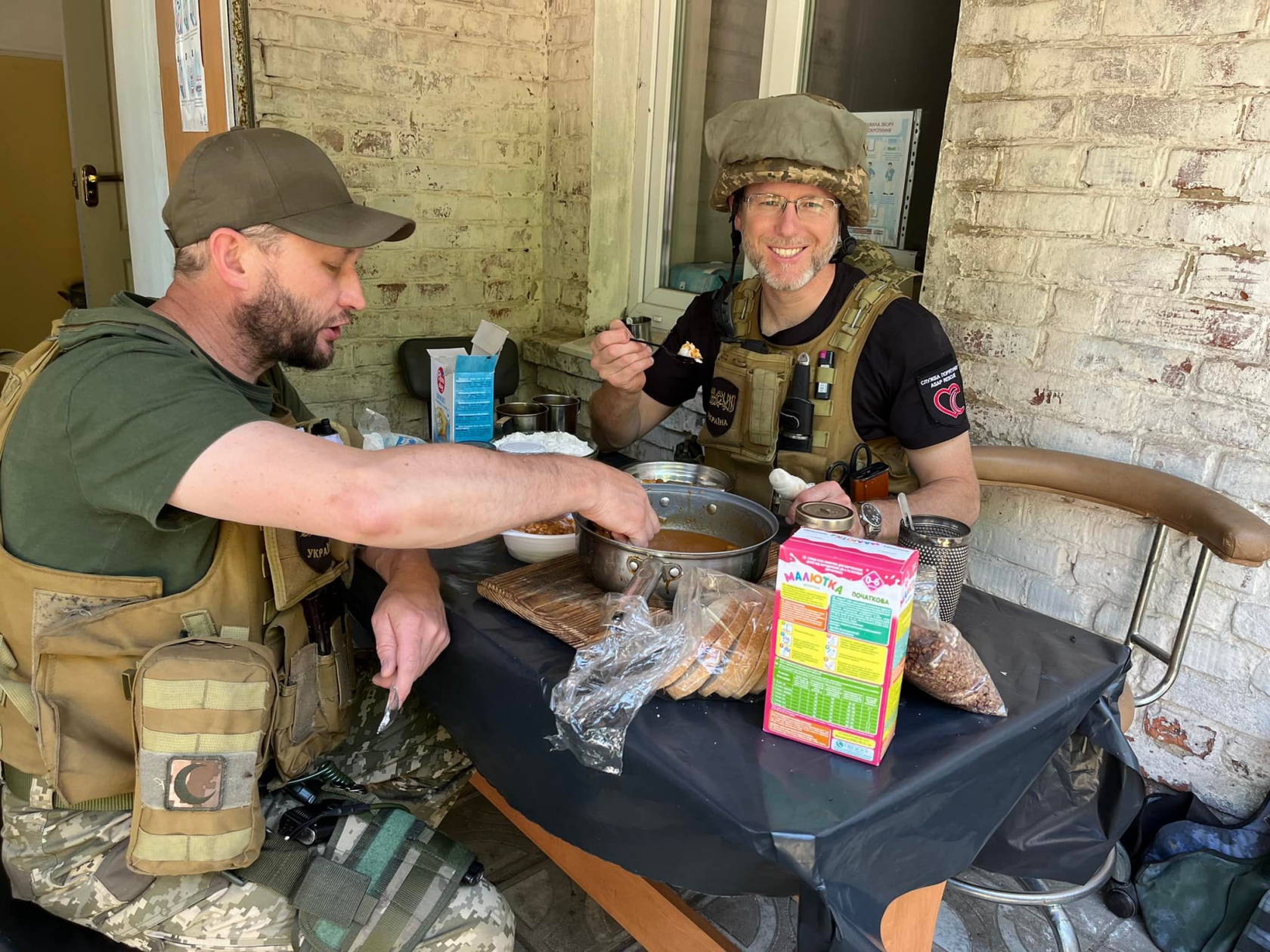 Ismagilov: "People have access to information and they still whine and make demands - in more or less peaceful towns as well. Yes, there's rocket fire pretty much everywhere, but it doesn't compare to what's happening along the front line."
Ismagilov: "People have access to information and they still whine and make demands - in more or less peaceful towns as well. Yes, there's rocket fire pretty much everywhere, but it doesn't compare to what's happening along the front line."
We all have to understand: Ukraine will win solely due to our unity, our awareness of who we are and what we are fighting for. It's very important that this spirit of fraternity, valuing of democratic freedoms, and moral principles is still there when the war is over.
There can be no reconciliation with pro-Russian collaborators who worked for Russia in the occupied territories. They must leave the territory of Ukraine or be deprived of their civil rights: the right to hold certain positions, to vote, be elected, and form state policy. After the war, we will have to live for a long time with what we've overcome.
We will have big moral and ethical problems between those who participated in the war and those who spent time in the rear or left the country to return later. The main thing is that these contradictions must not become an excuse for internal conflicts. That is why we will need a national dialogue after the victory.
It must be understood that not every man can be a soldier. This I know for sure after being at the front. It even happens that a man is sure that he will cope, but when he comes under fire, he begins to panic and suffers acute stress.
He is shaking, crying, and can't do anything at all. We must realise: all people are different, not everyone can be a warrior. But each of us must help Ukraine to the best of our ability and capabilities.
I have no doubts about our victory. I want to say to all soldiers, defenders, volunteers, and all who work for Ukraine in one way or another, that victory does not start with weapons. It always starts in the head and in the heart.
When you are confident in yourself and in your country, when you understand what you are fighting for, and don't complain about the lack of electricity, you are victorious. Yevhen Rudenko, Ukrainska Pravda Translation: Artem Yakymyshyn, Tetiana Buchkovska, Liudmyla Lesiv
Editor: Teresa Pearce